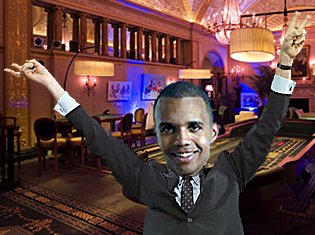 Poker great Phil Ivey has admitted reading design flaws in playing cards that led to a disputed £7.8m payday at London’s Crockfords casino last August, but suggested it was the casino’s fault for not catching on to his game earlier. Ivey has been locked in a dispute with Crockfords since last October, when the casino refused to pay Ivey the £7.8m he believed he’d earned playing the punto banco version of baccarat. In May, Ivey filed a High Court suit against Crockfords in a bid to compel them to pay up.
Poker great Phil Ivey has admitted reading design flaws in playing cards that led to a disputed £7.8m payday at London’s Crockfords casino last August, but suggested it was the casino’s fault for not catching on to his game earlier. Ivey has been locked in a dispute with Crockfords since last October, when the casino refused to pay Ivey the £7.8m he believed he’d earned playing the punto banco version of baccarat. In May, Ivey filed a High Court suit against Crockfords in a bid to compel them to pay up.
Crockfords – which bills itself as the world’s oldest private gaming club – responded to Ivey’s suit by accusing him and his female companion, an American of Asian descent named Kelly, of operating a ‘scam’ that “acted to defeat the essential premise of the game.” Crockfords said Ivey and Kelly repeatedly asked their dealer to swap card decks until they spotted a deck that had been cut incorrectly by the card manufacturer, creating an irregular pattern in the design on the back of the cards.
Crockfords said that Kelly then asked the dealer to reveal each card in that deck in order to identify cards with values of seven, eight or nine, which are deemed valuable in punto banco. Kelly then asked the dealer to rotate these cards in the opposite direction of the rest of the deck, so that when these ‘good’ cards came around again, Ivey would wager accordingly.
Crockfords, which is owned by Malaysian gambling operator Genting, said Ivey had lost £500k until he and Kelly identified the irregular deck, after which he asked to be allowed to raise his wagering limit from £50k per hand to £150k. Crockfords agreed and Ivey subsequently cleaned them out. After catching on to Ivey and Kelly’s antics, Crockfords returned Ivey’s original £1m stake but refused to pay out a penny more.
In court papers viewed by the Daily Mail, Ivey admitted to this ‘edge sorting’ technique, but denies that this amounted to cheating. Ivey admits that Kelly was practiced at “identifying the design flaws” in cards but said Crockfords would have been well aware of the potential for ‘advantage players’ such as himself to capitalize on the presence of irregular card decks, and thus it was the casino’s responsibility to eliminate these decks before they reached the gaming tables. Ivey says Crockfords’ failure to do so in no way alleviates the casino of their responsibility to pay him his winnings.
